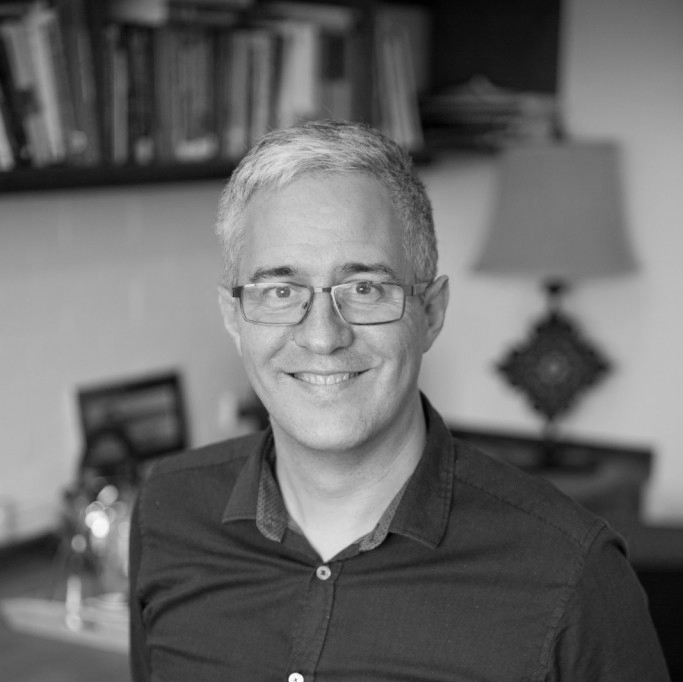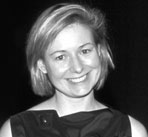Chairs
 Rafael A Calvo is Professor at the University of Sydney and ARC Future Fellow. He worked at the Language Technology Institute in Carnegie Mellon University, Universidad Nacional de Rosario (Argentina) and on sabbaticals at the University of Cambridge and the University of Memphis. Rafael also has worked as an Internet consultant for projects in the US, Australia, Brasil, and Argentina. He is the author of two books and over 100 publications in the fields of learning technologies, affective computing and computational intelligence. Rafael is Associate Editor of the IEEE Transactions on Affective Computing and the Journal of Medical Internet Research (JMIR-HF). Rafael is Editor of the Oxford Handbook of Affective Computing and co-author of ‘Positive Computing’ (MIT Press) with Dorian Peters.
Rafael A Calvo is Professor at the University of Sydney and ARC Future Fellow. He worked at the Language Technology Institute in Carnegie Mellon University, Universidad Nacional de Rosario (Argentina) and on sabbaticals at the University of Cambridge and the University of Memphis. Rafael also has worked as an Internet consultant for projects in the US, Australia, Brasil, and Argentina. He is the author of two books and over 100 publications in the fields of learning technologies, affective computing and computational intelligence. Rafael is Associate Editor of the IEEE Transactions on Affective Computing and the Journal of Medical Internet Research (JMIR-HF). Rafael is Editor of the Oxford Handbook of Affective Computing and co-author of ‘Positive Computing’ (MIT Press) with Dorian Peters.
 Rosalind W. Picard is founder and director of the Affective Computing Research Group at the MIT Media Laboratory and faculty chair of MIT’s Mind+Hand+Heart wellbeing initiative. She is co-founder of Empatica, creating wearable sensors and analytics to improve health, and Affectiva, providing analytics to measure and communicate emotion. Picard is the author of the book Affective Computing, which helped give rise to a field by that name, and has authored or co-authored over two hundred scientific articles and chapters spanning HCI, computer vision, pattern recognition, machine learning, wearable sensors and affective computing. She is an IEEE Fellow, and was named by CNN as “One of seven Tech SuperHeroes to watch in 2015”. Picard is a recipient of several best paper prizes, including work on machine learning with multiple models (with Minka, 1998), a best theory paper prize for affect in human learning (with Kort and Reilly, 2001), a best Face and Gesture paper prize for work with facial expressions (with McDuff, Kaliouby and Demirdjian, 2013) and a best UBICOMP paper for an automated conversation coach (with Hoque et al, 2013).
Rosalind W. Picard is founder and director of the Affective Computing Research Group at the MIT Media Laboratory and faculty chair of MIT’s Mind+Hand+Heart wellbeing initiative. She is co-founder of Empatica, creating wearable sensors and analytics to improve health, and Affectiva, providing analytics to measure and communicate emotion. Picard is the author of the book Affective Computing, which helped give rise to a field by that name, and has authored or co-authored over two hundred scientific articles and chapters spanning HCI, computer vision, pattern recognition, machine learning, wearable sensors and affective computing. She is an IEEE Fellow, and was named by CNN as “One of seven Tech SuperHeroes to watch in 2015”. Picard is a recipient of several best paper prizes, including work on machine learning with multiple models (with Minka, 1998), a best theory paper prize for affect in human learning (with Kort and Reilly, 2001), a best Face and Gesture paper prize for work with facial expressions (with McDuff, Kaliouby and Demirdjian, 2013) and a best UBICOMP paper for an automated conversation coach (with Hoque et al, 2013).
 Karthik Dinakar is a PhD candidate and Reid Hoffman Fellow at MIT. He is a computer scientist in the fields of machine learning, natural language processing and human-computer interaction to compute for empathy. His graduate work involves applying probabilistic graphical models and to model, understand and predict adolescent distress, crisis counseling and self-harm. He is interested in causal inference, large-scale single-subject experiment designs, bayesian graph theoretic machine learning for embedding clinical science in the naturalistic settings that people live in everyday.
Karthik Dinakar is a PhD candidate and Reid Hoffman Fellow at MIT. He is a computer scientist in the fields of machine learning, natural language processing and human-computer interaction to compute for empathy. His graduate work involves applying probabilistic graphical models and to model, understand and predict adolescent distress, crisis counseling and self-harm. He is interested in causal inference, large-scale single-subject experiment designs, bayesian graph theoretic machine learning for embedding clinical science in the naturalistic settings that people live in everyday.
 John Torous, MD is co-director of the digital psychiatry program at Beth Israel Deaconess Medical Center, a Harvard Medical School affiliated teaching hospital, where he also serves as a staff psychiatrist and clinical informatics fellow. He has a background in electrical engineering and computer sciences and received an undergraduate degree in the field from UC Berkeley before attending medical school at UC San Diego. He completed his psychiatry residency at Harvard. Dr. Torous is active in investigating the potential of mobile mental health technologies for psychiatry, developing smartphone tools for clinical research, leading clinical studies of smartphone apps for diverse mental illnesses, and publishing on the research, ethical, and patient perspectives of digital psychiatry. He serves as editor-in-chief for the leading academic journal on technology and mental health, JMIR Mental Health (http://mental.jmir.org/), and currently leads the American Psychiatric Association’s work group on the evaluation of smartphone apps
John Torous, MD is co-director of the digital psychiatry program at Beth Israel Deaconess Medical Center, a Harvard Medical School affiliated teaching hospital, where he also serves as a staff psychiatrist and clinical informatics fellow. He has a background in electrical engineering and computer sciences and received an undergraduate degree in the field from UC Berkeley before attending medical school at UC San Diego. He completed his psychiatry residency at Harvard. Dr. Torous is active in investigating the potential of mobile mental health technologies for psychiatry, developing smartphone tools for clinical research, leading clinical studies of smartphone apps for diverse mental illnesses, and publishing on the research, ethical, and patient perspectives of digital psychiatry. He serves as editor-in-chief for the leading academic journal on technology and mental health, JMIR Mental Health (http://mental.jmir.org/), and currently leads the American Psychiatric Association’s work group on the evaluation of smartphone apps